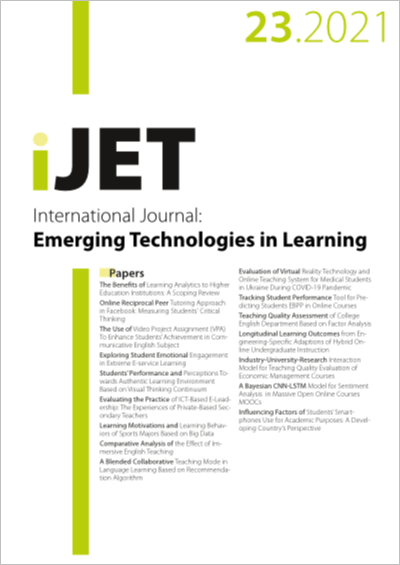Research on the Relationship between Students’ Learning Adaptability and Learning Satisfaction under the Mobile Media Environment
DOI:
https://doi.org/10.3991/ijet.v17i02.28549Keywords:
mobile social media; students; learning adaptability; learning satisfaction; mesomeric effectAbstract
The effective realization of the balance between the supply and demand of students’ personalized learning and the shortage of offline classroom teaching resources is of great significance to large-scale online learning. Based on the relevant theories of learning adaptability, this paper analyzes the five dimensions of students’ learning adaptability to learning satisfaction in the mobile social media environment and studies the mediating effect of mobile social media familiarity on students’ learning adaptability and learning satisfaction. The results show that the Cronbach’s α coefficient of the overall questionnaire is 0.930 and the KMO value is 0.873, indicating that the research data have good reliability and validity. Learning motivation, teaching model, learning ability, learning attitude, and learning environment have a significant positive effect on learning satisfaction. The average learning satisfaction of students not familiar with the use of mobile social media (3.70 ± 0.55) is significantly lower than that of students familiar with using mobile social media (4.00 ± 0.46). The research results of this paper provide data support and strategic reference for how to effectively use the fragmented content of mobile social media and provide high-quality online learning support services.
Downloads
Published
How to Cite
Issue
Section
License
Copyright (c) 2021 Guanghui Liu

This work is licensed under a Creative Commons Attribution 4.0 International License.



